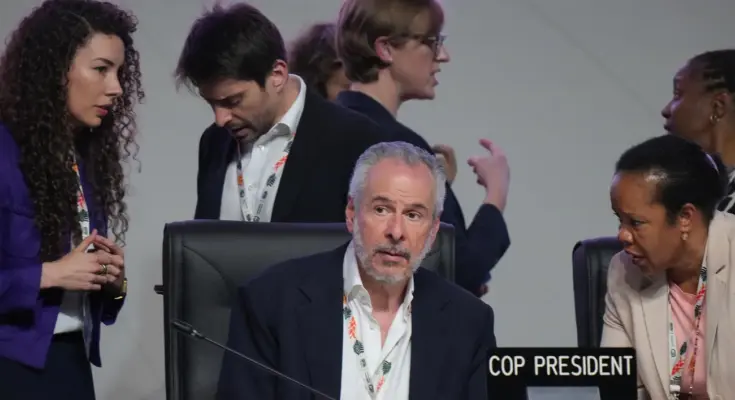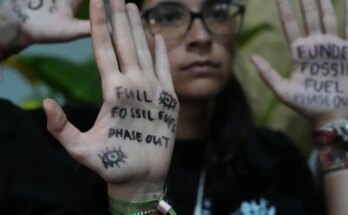At the end of the 30th World Climate Conference (COP30) in Belém, Brazil, delegates agreed to only minimal compromises. The text of the resolution does not contain a roadmap for the global phase-out of fossil fuels. The European Union in particular has encouraged this.
The text of the resolution was approved by the conference plenary on Saturday, as announced by COP30 President André Corrêa do Lago. He emphasized the need to drastically reduce global greenhouse gas emissions to comply with the Paris Climate Agreement. The text also contains a commitment that assistance for developing countries to adapt to the impacts of global warming must be tripled by 2035.
On Friday, the European Union and other countries, especially Latin American countries and small island states, threatened not to agree to a final declaration without the roadmap. “Under no circumstances will we accept this,” EU Climate Commissioner Wopke Hoekstra said in a closed meeting.
“A little disappointed”
Federal Environment Minister Carsten Schneider (SPD) is “a little disappointed” that no efforts have been made in Belem to move away from fossils. However, the EU and its partners are faced with a “very powerful” coalition of oil-producing countries.
However, the current resolution is “not a step back at all, but rather an intermediate step,” Schneider said. Germany and the EU will now “forge an alliance” to take further steps to put up a “stop sign” on fossil energy.
Schneider’s Foreign Minister Jochen Flasbarth said that with the revision of the text of the resolution, world conditions were at least better “than two days ago.” He justified the fact that the EU did not allow the decision to fail by refusing to give its approval by saying that “there is no other process” to advance global climate protection efforts other than the UN climate conference.
Brazil initiated the roadmap on a voluntary basis
At climate conferences, decisions are taken based on the principle of consensus. This means that a country’s veto is sufficient to prevent a decision. Most importantly, oil exporting countries, Saudi Arabia, as well as Russia, rejected the ambitious decision.
After the World Climate Conference ended, Brazil announced a roadmap to phase out fossil fuels voluntarily. “We know that some of them have bigger ambitions,” said COP30 President Corrêa do Lago. That’s why his country started a voluntary roadmap to shift away from coal, oil and gas and others to combat forest destruction.



